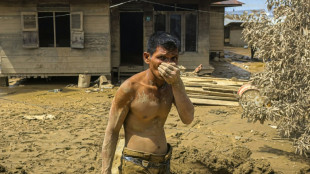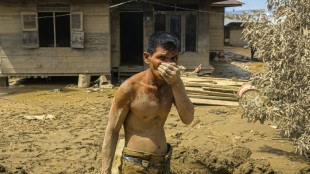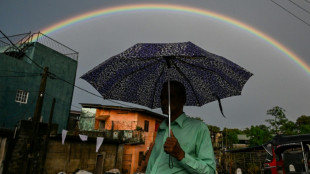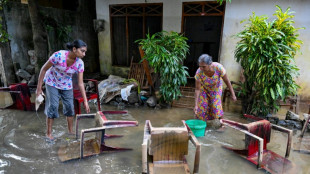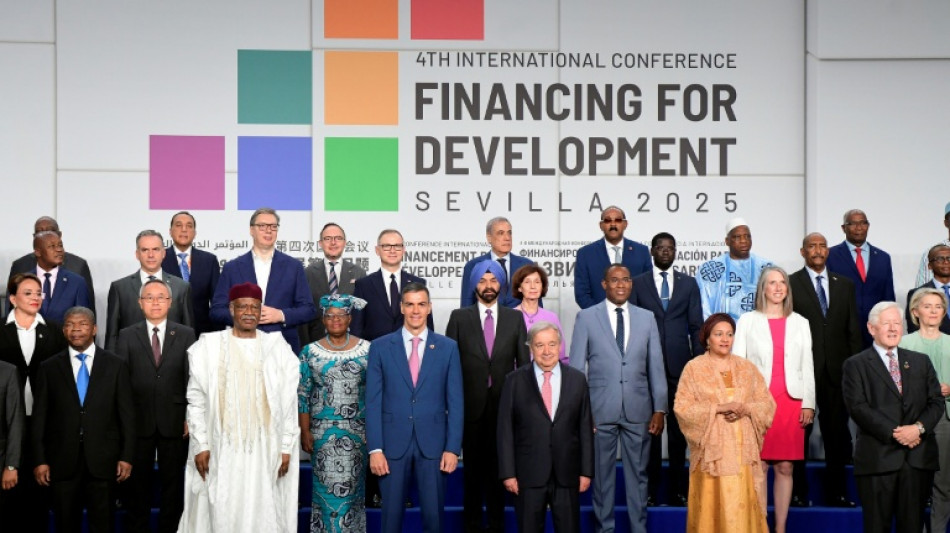
| JRI | 0.29% | 13.79 | $ | |
| BCC | -1.66% | 73.05 | $ | |
| NGG | -0.66% | 75.41 | $ | |
| SCS | -0.56% | 16.14 | $ | |
| GSK | -0.33% | 48.41 | $ | |
| CMSD | -0.3% | 23.25 | $ | |
| BCE | 1.4% | 23.55 | $ | |
| RBGPF | 0% | 78.35 | $ | |
| CMSC | -0.21% | 23.43 | $ | |
| BTI | -1.81% | 57.01 | $ | |
| RIO | -0.92% | 73.06 | $ | |
| RELX | -0.55% | 40.32 | $ | |
| BP | -3.91% | 35.83 | $ | |
| AZN | 0.17% | 90.18 | $ | |
| RYCEF | -0.34% | 14.62 | $ | |
| VOD | -1.31% | 12.47 | $ |
UN chief urges aid surge in world of 'climate chaos, raging conflicts'

UN Secretary-General Antonio Guterres urged the world to "rev up the engine of development" at an aid conference in Spain on Monday at a time when US-led cuts are jeopardising the fight against poverty and climate change.
Dozens of world leaders and more than 4,000 representatives from businesses, civil society and financial institutions are gathering in the city of Seville for the June 30-July 3 conference to seek fresh impetus for the crisis-hit aid sector.
But the United States is snubbing the biggest such talks in a decade, underlining the erosion of international cooperation on combating hunger, disease and climate change.
Guterres told delegates at the opening of the conference that two-thirds of United Nations sustainable development goals set for 2030 were "lagging" and more than $4.0 trillion of annual investment would be needed to achieve them.
US President Donald Trump's gutting of his country's development agency, USAID, is the standout example.
But Germany, Britain and France are also making cuts while they boost spending in areas such as defence.
International charity Oxfam says the cuts to development aid are the largest since 1960.
More than 800 million people live on less than $3.0 a day, according to the World Bank, with rising extreme poverty affecting sub-Saharan Africa in particular.
Disruption to global trade from Trump's tariffs and ongoing conflicts in the Middle East and Ukraine have dealt further blows to the diplomatic cohesion necessary for concentrating efforts on helping countries escape poverty.
The crisis meant children going unvaccinated, girls dropping out of school and families suffering hunger, said Guterres.
He urged the international community to "change course" and "repair and rev up the engine of development to accelerate investment" in "a world shaken by inequalities, climate chaos and raging conflicts".
A blistering heatwave that is scorching southern Europe welcomed the delegates to the Fourth International Conference on Financing for Development, an example of the extreme weather that scientists say human-driven climate change is fuelling.
- 'Colonial debt' -
Kenya's William Ruto, Senegalese President Bassirou Diomaye Faye, Ecuador's Daniel Noboa, Angolan leader Joao Lourenco and Sudanese army chief Abdel Fattah al-Burhan were among prominent Global South leaders in Seville.
Among the key topics up for discussion is reforming international finance to help poorer countries shrug off a growing debt burden that inhibits their capacity to achieve progress in health and education.
The total external debt of the group of least developed countries has more than tripled in 15 years, according to UN data.
Critics have singled out US-based bulwarks of the post-World War II international financial system, the World Bank and the International Monetary Fund, for reform to improve their representation of the Global South.
Painstaking talks in New York in June produced a common declaration to be adopted in Seville that only went ahead after the United States walked out.
The document reaffirms commitment to the UN development goals such as eliminating poverty and hunger, promoting gender equality, reforming tax systems and international financial institutions.
The text also calls on development banks to triple their lending capacity, urges lenders to ensure predictable finance for essential social spending and for more cooperation against tax evasion.
Coalitions of countries will seek to spearhead initiatives in addition to the so-called "Seville Commitment", which is not legally binding.
But campaigners have criticised the text for lacking ambition and have rung alarm bells about rising global inequality.
Hundreds of demonstrators braved the sizzling heat in Seville on Sunday to demand change in international tax, debt and aid policies.
"Global South countries will never be able to decide how they want to do development if they are bound to the new colonial debt," protester Ilan Henzler, 28, told AFP.
F.Colin--PS

 London
London

 Manchester
Manchester
 Glasgow
Glasgow
 Dublin
Dublin
 Belfast
Belfast
 Washington
Washington
 Denver
Denver
 Atlanta
Atlanta
 Dallas
Dallas
 Houston Texas
Houston Texas
 New Orleans
New Orleans
 El Paso
El Paso
 Phoenix
Phoenix
 Los Angeles
Los Angeles
